As the days become longer, consider growing sprouts to honor the return of spring. This practice is a traditional part of Nowruz — an ancient holiday celebrating the Persian new year, on the vernal equinox — and symbolizes rebirth and rejuvenation.
Though celebrants of Nowruz (no-ROOZ) release grown sprouts into running water, it’s worthwhile to save some for your kitchen, too. Nutritionally dense, sprouts are rich in folate, magnesium, and vitamin K, though the specific ratio depends on the type. They can be added raw to salads and sandwiches, and they make a great addition to soups, omelets, and smoothies.
Sprouts can be produced with any of a variety of plant foods, including seeds, beans, peas, vegetables, or nuts, as well as grains, such as brown rice; Nowruz sprouts are grown from wheat or lentils. (If using seeds, choose sprouting seeds rather than those intended for gardening.)
If you’d like to try growing sprouts for Nowruz, or just to have them on hand at any time of the year, follow these tips to get started.
Supplies
- 1–2 tbs. seeds (or other starters)
- Wide-mouth jar
- Rubber band
- Cheesecloth
- Bowl with lid
Directions
1) Soak Overnight
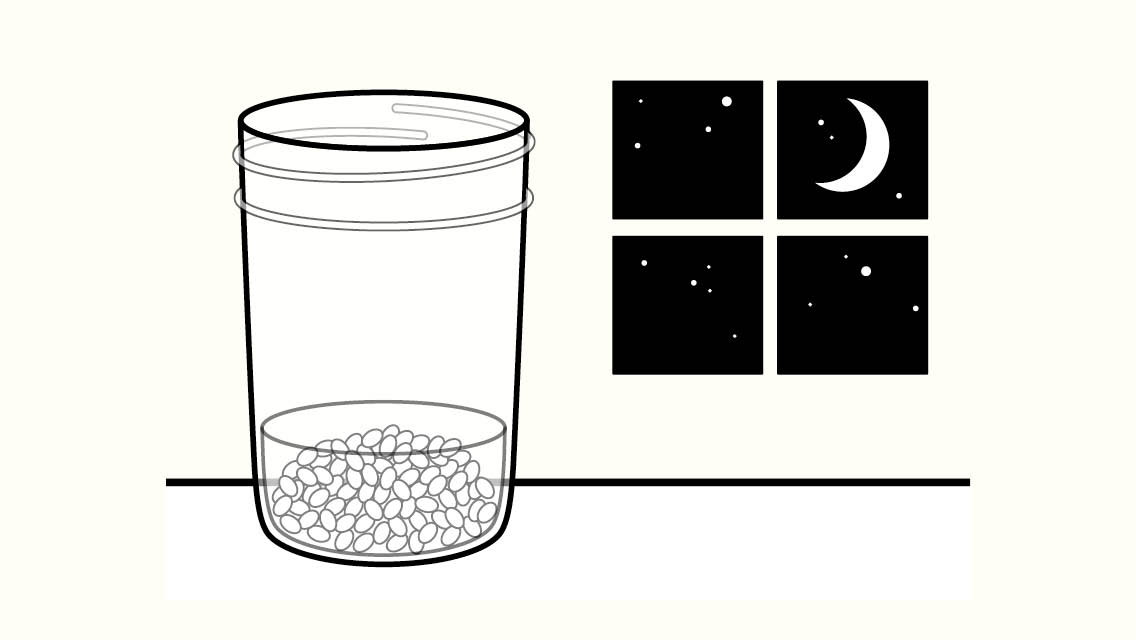
Place 1 to 2 tablespoons of the seeds or other starters you’d like to use in a clean jar. Cover them with water and leave them to soak overnight.
2) Rinse and Drain
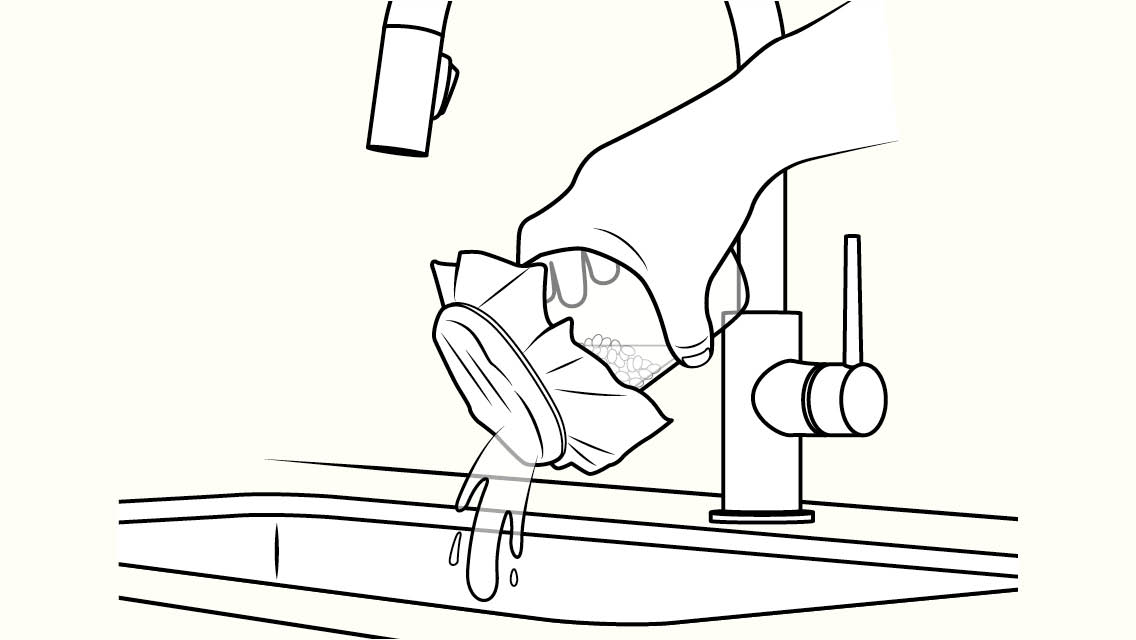
Use a rubber band to secure cheesecloth over the jar, then tip the jar to drain. Remove cheesecloth to add fresh water, and swirl the mixture around. Replace cheesecloth and tip the jar to drain again.
3) Refrigerate Grown Sprouts
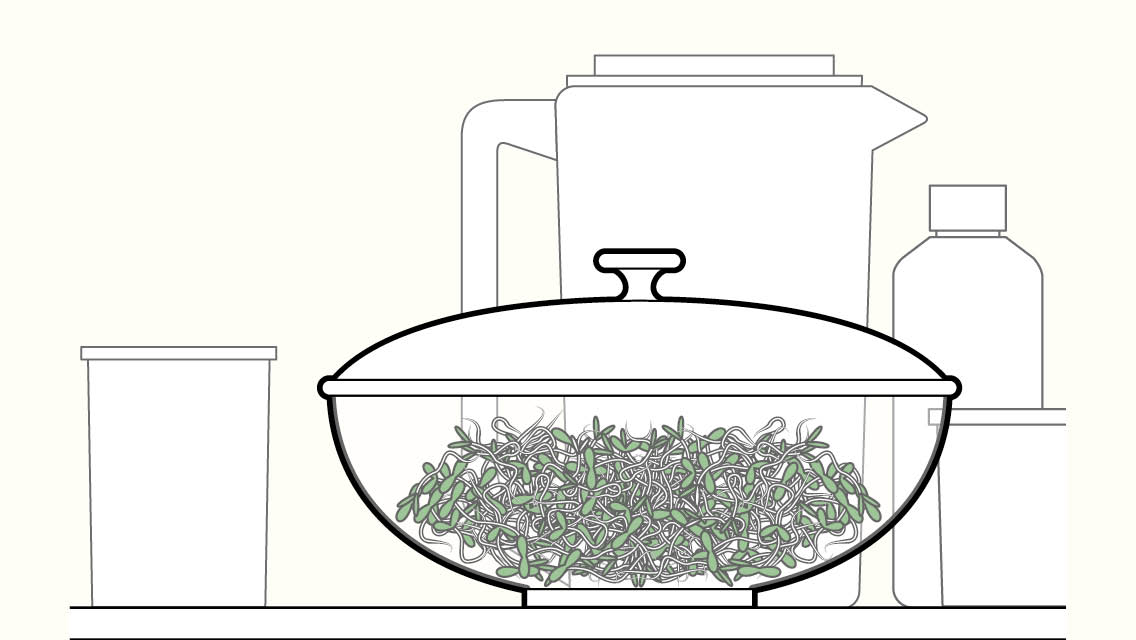
Repeat step 2 every day for three to seven days, until the sprouts are between 1 and 2 inches long. Refrigerate grown sprouts in a covered bowl for up to a week.
Sprout Safety
Sprouts can be a breeding ground for salmonella, E. coli, and other bacteria. Growing your own can reduce the risk of food poisoning, especially if you follow these tips:
- Buy certified-organic sprouting seeds or starters.
- Clean all sprouting equipment — including your hands.
- Use fresh, filtered water for soaking and for each rinse.
- Make sure the sprouting container is free of standing water after the initial soaking.
- Rinse raw sprouts, or cook thoroughly, before consuming.
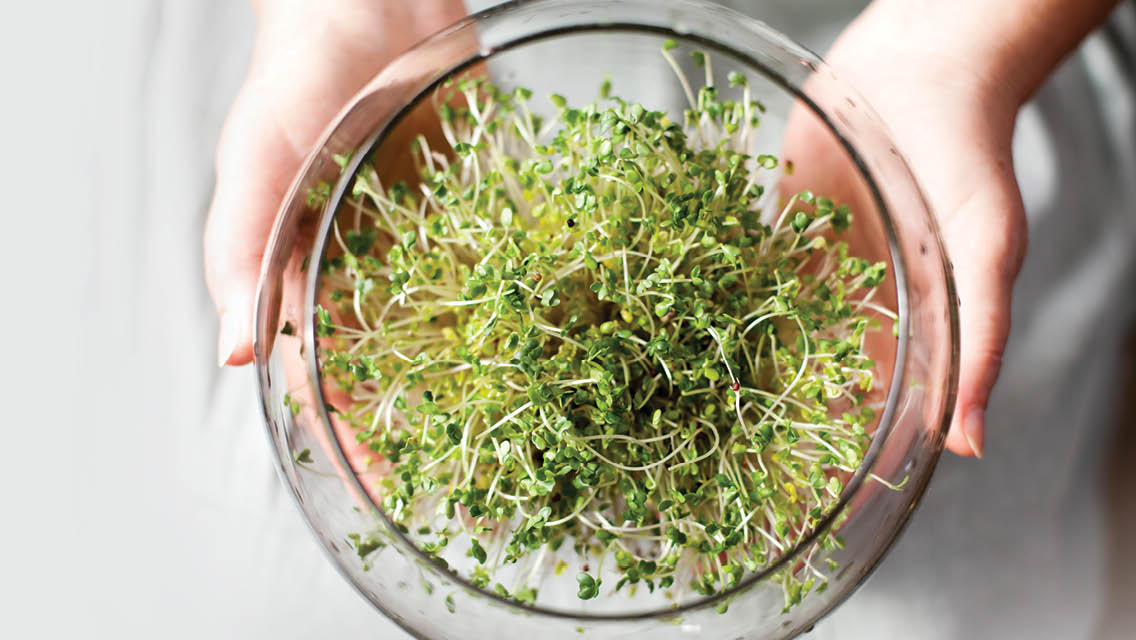

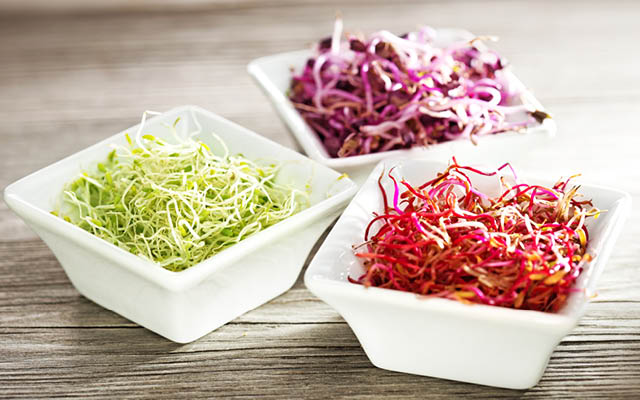
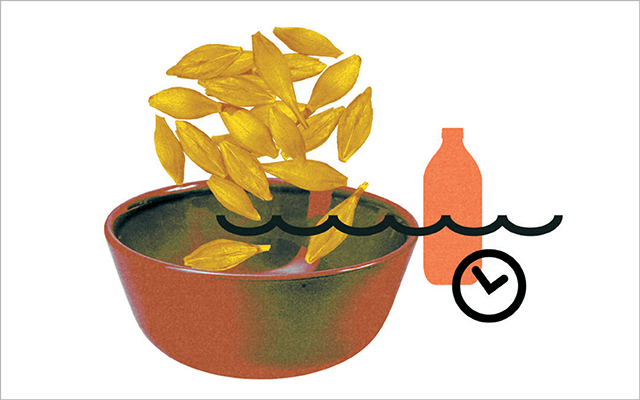
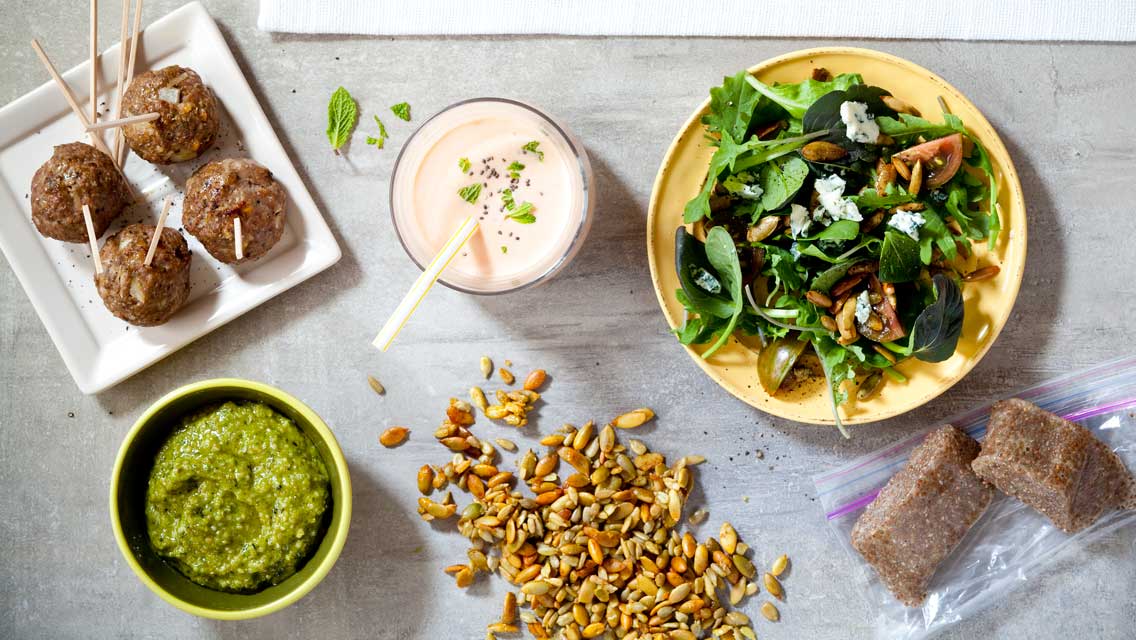
This Post Has 0 Comments